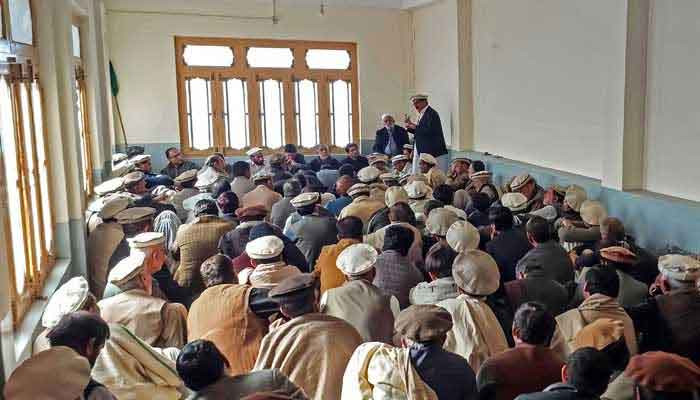Voluntary Surrender of Heavy Weapons in Kurram
In a move aimed at fostering sustained tranquility in the region, tribal elders in Lower and Upper Kurram voluntarily relinquished a substantial cache of heavy weaponry on Saturday.
This handover, which constitutes the initial phase, saw community leaders from both Lower and Upper Kurram presenting a significant amount of heavy arms to the local authorities.
Deputy Commissioner Kurram, Ashfaq Ahmed, stated that these actions are in accordance with the peace accord finalized in Kohat. This agreement has also facilitated the destruction of approximately one thousand bunkers previously erected by opposing factions. The voluntary disarmament process is expected to extend to other areas within the district in the coming period.
The Deputy Commissioner also mentioned that the government is dedicated to re-establishing transportation routes and initiating multiple projects to bring relief to communities impacted by years of instability, in addition to the disarmament efforts.
Tribal leaders Zamin Hussain and Abdul Manan addressed the media, pledging their unwavering support to the government in its pursuit of peace. They further appealed to officials to hasten the reopening of roads and provide crucial aid to the local populace enduring the consequences of prolonged insecurity.
Kurram, home to over 600,000 people and located near the Afghanistan-Pakistan border, has historically been plagued by sectarian strife. Recent months have witnessed an increase in tensions, with clashes resulting in over 200 fatalities since July.
The recent conflicts have intensified a humanitarian crisis within the district, resulting in dangerously low supplies of essential medicines and oxygen due to the ongoing closure of the primary highway linking Parachinar and Peshawar.
Reports indicate that a critical shortage of medicine may have led to the deaths of over 100 children, although Barrister Saif, a spokesperson for the Khyber Pakhtunkhwa government, has refuted these claims.
To mediate discussions between the conflicting tribes in the violence-affected area, a grand peace jirga was organized at Kohat Fort. Following extensive negotiations, the two adversarial tribes formally endorsed a 14-point peace agreement in January 2025, with the goal of establishing peace within the region.
However, the agreement faced a considerable obstacle when Assistant Commissioner Saeed Manan, who was actively mediating to stop renewed hostilities in Kurram, sustained injuries along with two others in a shooting incident in February.
Following determined efforts by law enforcement, stability was reinstated, and vital supplies began to reach Kurram, which had been isolated from the rest of the nation for several months.
As part of the initiatives to foster peace, a series of bunkers were dismantled in both the upper and lower regions of Kurram during the previous month. The removal of tribal bunkers commenced subsequent to the peace agreement.



Comments (0)
No comments yet. Be the first to comment!
Leave a Comment